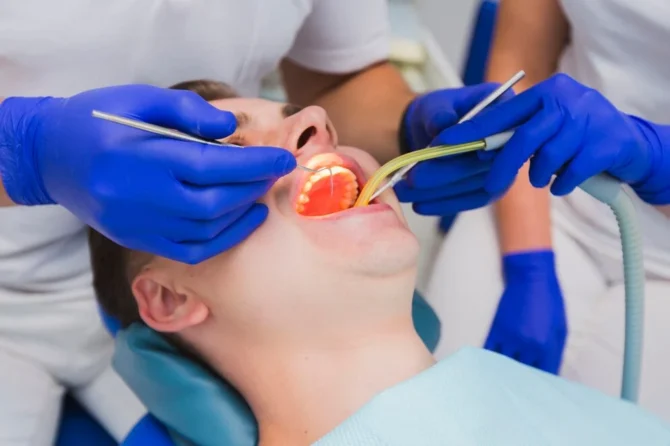
What is Wisdom Tooth Removal and Can it Be Prevented?
Dealing with the discomfort caused by wisdom teeth is a common dental concern that many individuals face. While the prospect of wisdom tooth removal may seem daunting, it’s crucial to comprehend the reasons behind its necessity. Wisdom teeth, the third molars, typically emerge between the ages of 17 and 25, earning their name from the belief that they appear when a person is older and wiser.
Complications often arise due to insufficient space in the mouth for these molars to fully emerge, leading to various issues such as pain, infection, crowding, tooth decay, and damage to adjacent teeth. In this article, we’ll delve into when wisdom tooth removal becomes absolutely necessary and explore whether it can be avoided.
Are Wisdom Teeth Important?
Many wonder about the significance of wisdom teeth and whether they serve a purpose. While humans in the past may have needed these molars due to dietary differences, our evolved cooking techniques and eating habits have rendered wisdom teeth less essential today. In fact, wisdom teeth are not vital, and people can function well without them. It’s worth noting that some individuals are born without wisdom teeth, and in the future, this might become more common.
When is Wisdom Tooth Removal Absolutely Necessary?
Wisdom tooth extraction is not always an emergency procedure, as dentists carefully monitor the progression of tooth eruption. However, there are certain conditions that necessitate wisdom tooth removal:
- Impaction: Wisdom teeth often erupt later in life, and if there isn’t enough space for them, they may become impacted, leading to potential infection and tooth decay. Partial eruption can also create a breeding ground for bacteria, making extraction the most viable solution.
- Overcrowding: Lack of adequate space in the mouth can result in overcrowding when wisdom teeth emerge, affecting bite dynamics and causing discomfort. In such cases, extraction becomes essential.
- Cavity: Wisdom teeth, being located at the back of the oral cavity, are prone to cavities due to difficulty in reaching them with a toothbrush. Untreated cavities can lead to damage to adjacent teeth, making wisdom tooth removal necessary.
- Jaw Cysts: The sac surrounding the wisdom tooth can fill with fluid, forming a cyst that causes pain and potential damage to nearby nerves, teeth, and jaw bones. Extraction is crucial to prevent the formation of jaw cysts.
- Damage to Adjacent Teeth: Abnormal eruption of wisdom teeth can exert constant pressure on adjacent molars, resulting in damage and misalignment. This can alter bite patterns and stress the jaw’s joints and muscles.
- Pericoronitis: Inflammation and infection of the gum tissue surrounding wisdom teeth can lead to pericoronitis, causing pain, a bad taste in the mouth, and difficulty in mouth opening. Extraction becomes necessary to alleviate these symptoms.
Can Wisdom Tooth Extraction Be Avoided?
While some individuals may have properly positioned and healthy wisdom teeth, it’s challenging to predict if problems will arise in the future. Choosing to avoid extraction is possible in such cases, but regular monitoring is essential. If pain or discomfort arises, delaying extraction may worsen the situation.
The best option if your wisdom tooth eruption is causing pain and discomfort is to have it extracted. Visit for wisdom tooth extraction Dubai dental clinic and get your teeth inspected. We have experienced dentists who can remove your wisdom teeth in no time. There is no need to worry if you think the procedure will be painful. You won’t feel any pain after the dentist numbs the area. The pain can be managed with painkillers once the numbness wears off.
Leave a reply

Leave a reply